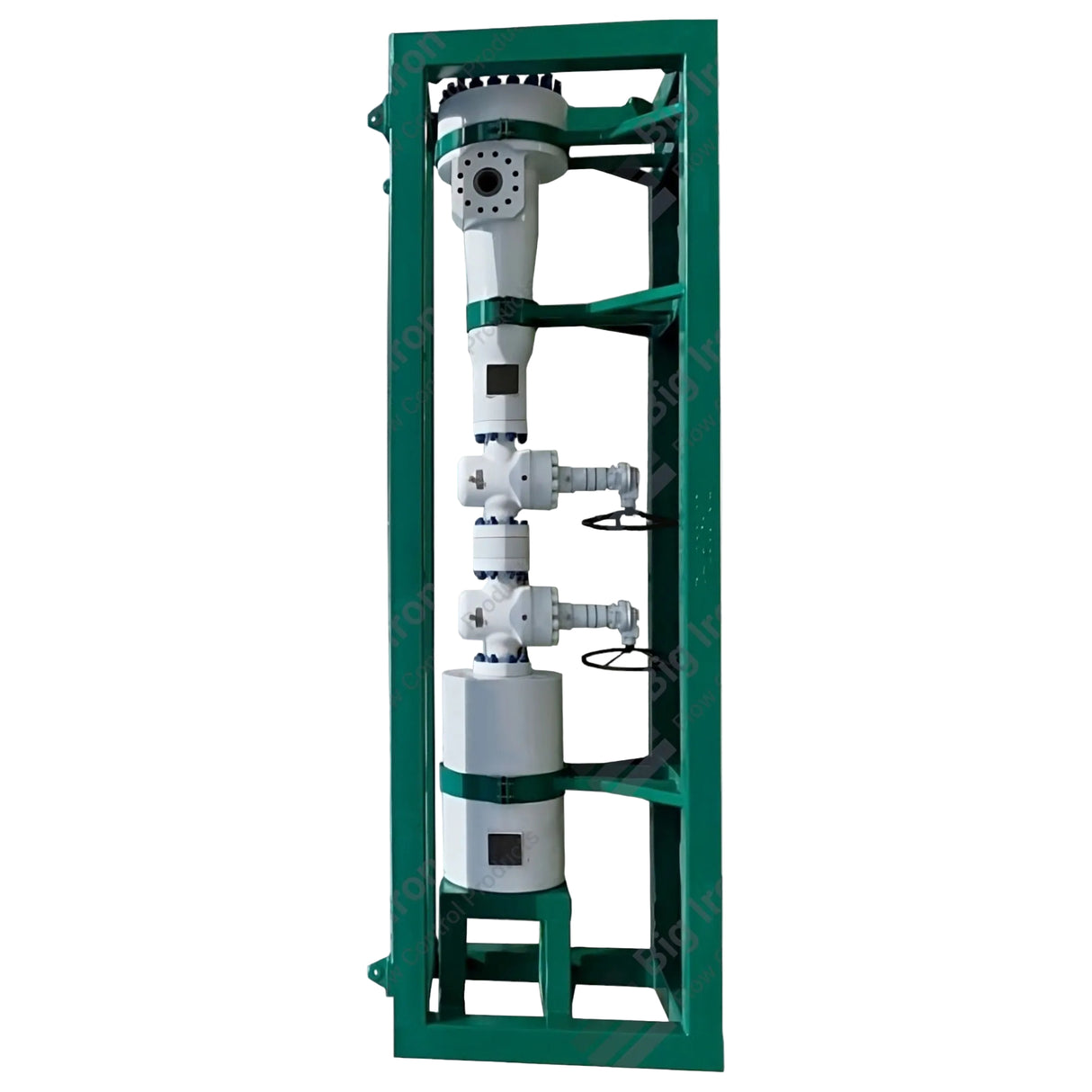Wellhead Desander, Portable Skid System, 15000 psi, Sour Service, PX, DNV Skid
Wellhead Desander, Portable Skid System, 15000 psi, Sour Service, PX, DNV Skid está agotado y se enviará tan pronto como vuelva a estar disponible.
No se ha podido cargar la disponibilidad de recogida
TWO UNITS AVAILABLE
CYCLONIC WELLHEAD DESANDER
(1) All piping supplied and installed along with valves and instrumentation
(4) Hydraulic Gate Valve 3 1/16" 15 kpsi, API 6A, PSL 3, PR1, EE SUPER TRIM,
(4) Manual Gate Valves 3 1/16 15K psi, API 6A, PSL 3, PR1, EE SUPER TRIM,
(1) DNV 2.7-1 Certified frame
Application: Well Flow Back or Production
Capacity: 20,000 BPD, 100 MMSCFD
Performance: Solids D98 >25 micron
Introduction:
Wellhead Desander cyclones are pressure drop dependent, where multiphase fluids are directed into the cyclone causing the fluids to spin under a centrifugal force. These strong forces cause the solids and fluids to separate.
Gas in particular, disengages and separates quickly. The heavier solids are forced outward toward the cyclone wall, and the lighter fluids and gas phases migrate in the opposite direction toward a centre core.
Solids spiral down the cyclone to the underflow outlet, while the remaining fluids are forced in the opposite direction to the overflow. The process is a simple and effective separator, with a 2-3 second retention time, and no moving parts. Solids are removed from the accumulator in batch operation while the Wellhead Desander unit remains on-line.
Applications:
Produced Sand Removal
Well Testing Operations
Coiled Tubing Cleanup
Underbalanced Drilling Operations
Benefits:
No moving parts combined with low maintenance and downtime result in significant capital and operating cost savings
Compact – 10% of the size and weight of conventional filter systems provide easier mobilization
Activates oil and gas wells previously shut-in due to excessive sand production
Eliminates solids erosion on downstream pipework, valves, chokes, and process vessels
Provides solids removal prior to oil contamination which eliminates sludge formation and other difficult solids accumulation problems
Operations:
Wellhead Desanders are available in a range of sizes and are designed to separate 98% of particles from 5 to 50 microns and larger, and up to 99% by weight
Operating pressure drop requirements vary from 5 to 75 psi, with the larger units handling solids volumes of up to 20% and the smaller units handling up to 1-2% by volume
Storage & Transportation:
Solids are typically collected into a dedicated secondary accumulator vessel. At high operating pressure the accumulator prevents high quantities of gas flashing to atmosphere during the purge cycle
To ensure liquids content in the final batch is minimized, water is reduced by the use of a filter-bin. The solids remain and the water is collected and pumped to a slops tank. The final sand slurry is typically >90% solids by volume.
The collected solids are removed either by tank replacement or by vacuum truck operation
Payment & Security
Payment methods
Your payment information is processed securely. We do not store credit card details nor have access to your credit card information.


